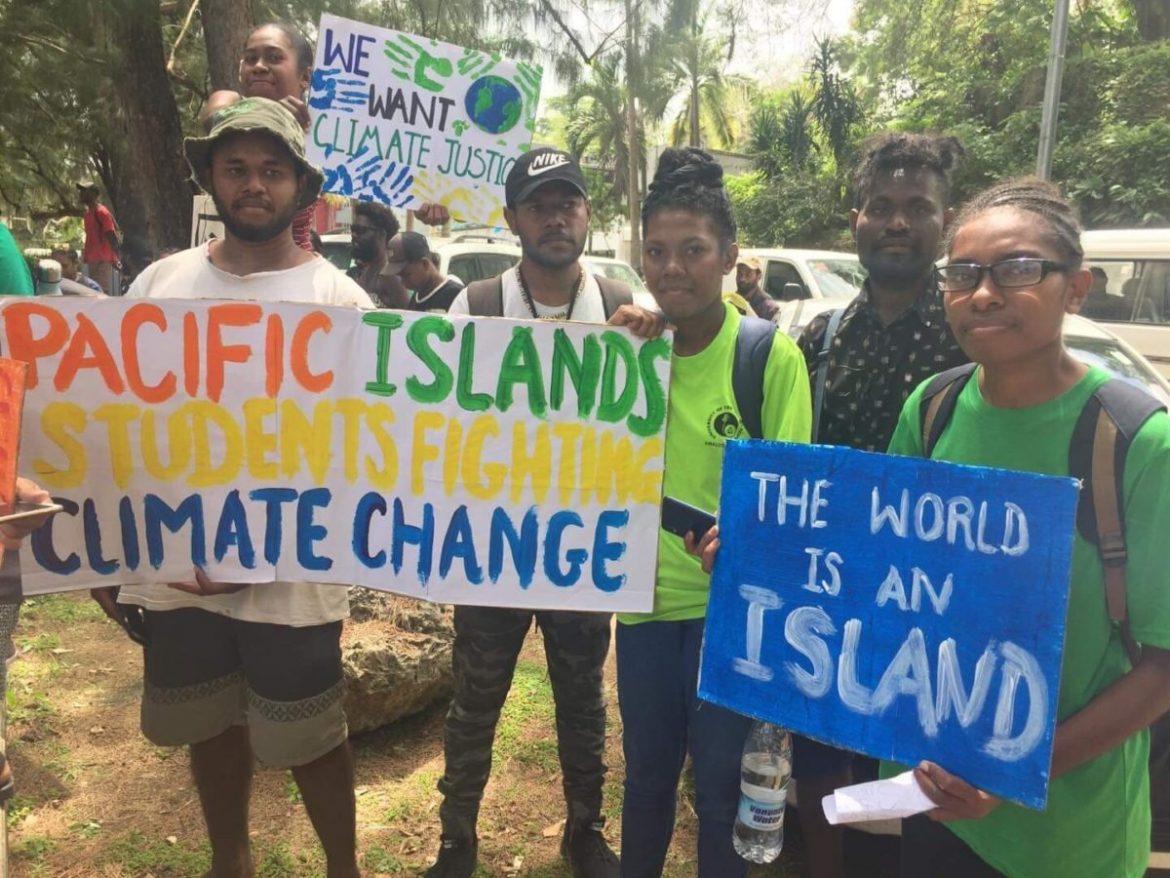Vanuatu’s call to request that the International Court of Justice (ICJ) gives an advisory opinion on states’ legal obligation for climate action and the consequences of causing harm is now being supported by 105 out of the 193 United Nations member states who are now co-sponsoring the draft resolution, which must be put to the whole UN to approve.
However, big wealthy economies like the USA, Japan and South Korea, oil and gas producers like Saudi Arabia and big emerging economies like China, India, Brazil, South Africa, Indonesia and Russia, are among the nations who have not yet backed the plan.
The plan was birthed by environmetal law students at Vanuatu’s University of the South Pacific campus who put the idea to their foreign ministry, from where it has gathered support from other island nations and has now built an international coalition.
Vanuatu said it had taken a “Herculean team effort” to reach this point, involving active engagement during consultations at the UN, diplomatic envoys around the world, and the advocacy civil society and youth groups.
Read also: Citi announces plan to cut emissions for more sectors including coal
“Today countries from North America, Latin America, Africa, Northern Europe, Asia and the Pacific have come together to demonstrate that we all share the value of upholding the rule of international law”, said Vanuatu prime minister Ishmael Alatoi Kalsakau Maaukoro.
Vanuatu is a small island nation in the Pacific that is particularly vulnerable to climate change and has long been at the forefront of efforts to fight it.
News that it had gathered international support for its ICJ resolution came as it was hit by a category 4 cyclone, with another possibly on its way,
“Vanuatu is out of time,” said Kalsakau. “We are doing all we can, yet losing this battle for which we are not responsible. There must be some accountability for the significant harm now being experienced by vulnerable people across the globe.”
Vanuatu expects many more states to confirm their support for the motion in the next few weeks, which may mean it can be adopted without a vote.
Under the proposal, the ICJ would be tasked with interpreting what international human rights and environmental laws mean for states’ responsibility to act on the causes and consequences of climate change as it has no enforcement powers and the exercise is not designed to win reparations for victims of climate disasters.
However, an ICJ opinion could inform climate lawsuits around the world and strengthen vulnerable countries’ position in international negotiations.
Experts have argued that it could give prominence to the question of support for victims of climate disaster after nations agreed to create a bespoke loss and damage fund at last year’s Cop27 climate talks and have recently set a date for crunch talks on the issue.
Story was adapted from CHN.
